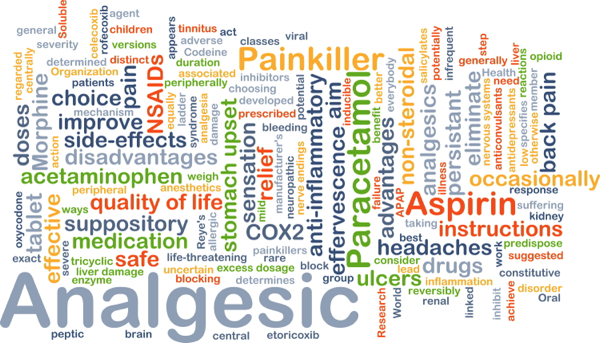- Both non-selective NSAIDs and selective COX-2 inhibitors elevate heart attack risk by suppressing prostacyclin, which regulates blood vessel dilation and prevents clotting.
- Heart attack risk spikes within the first month of NSAID use—sometimes within days—especially at high doses, with rofecoxib doubling risk and ibuprofen and naproxen increasing it by 75%.
- A BMJ analysis of nearly 500,000 patients confirmed NSAIDs heighten cardiovascular risk, peaking in early usage.
- Holistic options like turmeric, omega-3s, capsaicin and white willow bark offer pain relief without NSAIDs’ cardiovascular dangers.
- Doctors and patients should weigh NSAID risks, especially for heart patients, and prioritize natural solutions amid growing evidence of pharmaceutical harms.
A recent German article published in the journal Praxis (Bern 1994) links the use of non-steroidal anti-inflammatory drugs (NSAIDs), including non-selective NSAIDs and selective COX-2 inhibitors, to an elevated cardiovascular risk. The review highlighted that these medications block and decrease prostacyclin, a chemical that inhibits platelets and promotes vasodilation. The study further notes that “[n]on-selective NSAIDs with a long half-life time are characterized by relatively stable plasma levels and thus a relatively stable platelet inhibition.” Inhibiting platelets from forming blood clots is crucial for preventing heart attacks and strokes.
An earlier study published in the British Medical Journal (BMJ) also revealed alarming evidence that widely used pain medications—namely, NSAIDs—significantly increase the risk of heart attacks, sometimes within just days of starting treatment. The research, analyzing data from nearly half a million patients across Canada, the U.K. and Finland, found that NSAIDs such as ibuprofen, naproxen and diclofenac can elevate heart attack risk, with the highest danger occurring in the first month of use.
The findings underscore growing concerns about the cardiovascular risks of these over-the-counter and prescription drugs, which millions rely on daily for pain relief.
NSAIDs and the heart: A dangerous connection
The study examined 446,763 individuals, including 61,460 who had suffered a heart attack, and found that all five NSAIDs assessed—ibuprofen, diclofenac, naproxen, rofecoxib and celecoxib—were linked to heightened cardiovascular risk. The most shocking finding was that rofecoxib (a COX-2 inhibitor previously withdrawn from the market due to safety concerns) more than doubled heart attack risk. Ibuprofen and naproxen increased cardiovascular risk by approximately 75%.
Even short-term use at high doses proved hazardous. Researchers noted that the odds of a heart attack surged by 50% among NSAID users compared to non-users, with the risk peaking in the first 30 days. The mechanism behind this danger lies in NSAIDs’ ability to suppress prostacyclin, a natural compound that helps regulate blood vessel dilation, while promoting platelet aggregation—factors that can trigger cardiovascular events.
BrightU.AI‘s Enoch engine also adds that NSAIDs damage the matrix chemistry between heart and arterial cells, increasing vulnerability to coronary plaque and heart attacks, while also raising blood pressure and causing congestive heart failure. Additionally, NSAIDs poison joint cartilage, accelerating degenerative joint disease and necessitating premature joint replacements.
A call for caution and natural solutions
Given the rapid onset of risk, researchers urged healthcare providers to weigh NSAIDs’ benefits against their dangers, particularly for patients with existing heart conditions or those prescribed high doses. But the study also raises a critical question: What safer alternatives exist?
Holistic medicine offers numerous natural pain-relief options with far fewer risks:
- Capsaicin (from chili peppers) blocks pain signals.
- Boswellia (Indian frankincense) and devil’s claw reduce inflammation.
- Turmeric (curcumin) and cat’s claw combat chronic pain.
- Omega-3 fatty acids (fish oil) mitigate inflammation.
- White willow bark, a natural precursor to aspirin, has been used for centuries.
- Arnica (found in products like T-Relief) eases muscle and joint pain.
- For some, medical marijuana—where legal—may also provide relief under professional guidance.
The studies add to mounting evidence that NSAIDs, long considered a first-line defense against pain, carry underappreciated cardiovascular dangers. While these medications may still have a role in acute care, their risks demand greater public awareness and a shift toward safer, natural alternatives whenever possible.
Patients and doctors alike should carefully consider both the benefits and risks before turning to NSAIDs. In an era where pharmaceutical safety is increasingly scrutinized, nature’s pharmacy may hold the key to effective and safer pain relief.
Watch this video to learn about natural alternatives to non-steroidal anti-inflammatory drugs (NSAIDs).
This video is from the Daily Videos channel on Brighteon.com.
Sources include:
NaturalHealth365.com
eContent.Hogrefe.com
MedicalXpress.com
BMJ.com
BrightU.ai
Brighteon.com
Read full article here


